Second World War in film: 20 of the best war films ever made

The most striking aspect of the commemorative events marking the 75th anniversary of the D-Day landings on 6 June 2019 was the testimony of the veterans who participated in the conflict and who spoke eloquently and movingly about the events of 6 June 1944.
These interviews should be compulsory viewing so people understand the courage and sacrifice of a generation of men and women who displayed the “unconquerable resolve” the Queen spoke about during her speech in Portsmouth.
The film world has, of course, brought us many depictions of the Normandy landings and the subsequent battles. You will find a number of those titles in this list of the 20 greatest Second World War films.
These 20 movies only scratch the surface of the countless number made about the momentous event, but remind us of the horrors and sacrifices made during the devastating global conflict.
Scroll through the gallery below to see the 20 greatest war films:
20 The Longest Day (Directed by Ken Annakin, Andrew Marton, Gerd Oswald, Bernhard Wicki, Darryl F Zanuck, 1962)
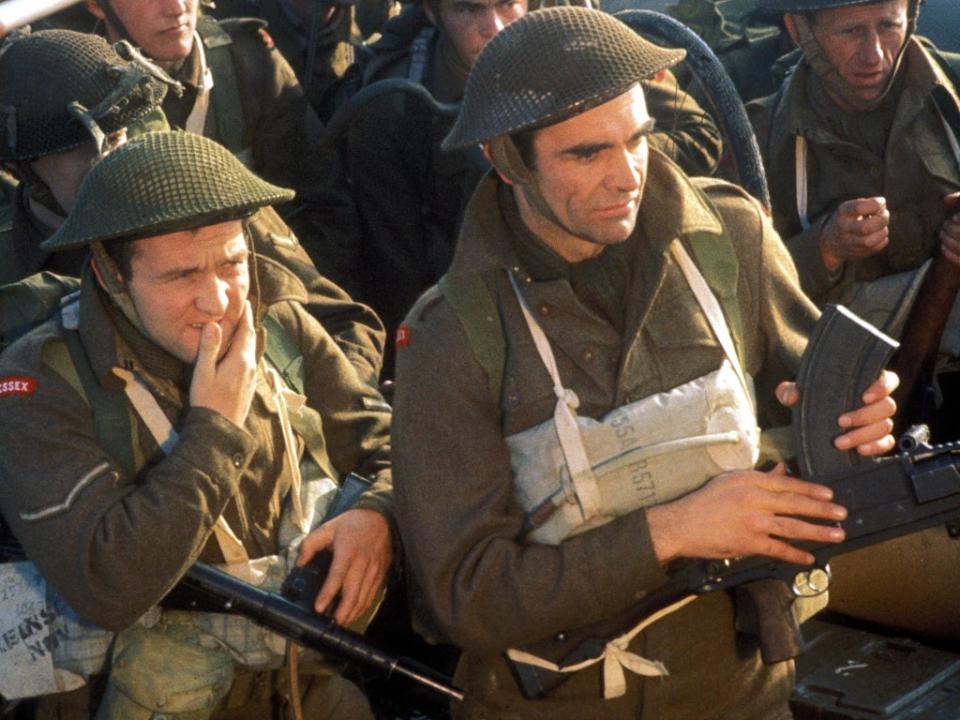
An epic all-star international cast in this drama, chronicling the D-Day invasion from the standpoint of both sides, which Life magazine dubbed “The Longest Headache”. At just under three hours long, it is indeed a marathon, but The Longest Day remains a grimly authentic recreation of events with Oscar-winning special effects and cinematography. D-Day veterans served as consultants, and one of the stars, Richard Todd, saw action in Normandy as part of Operation Overlord.
19 Overlord (Stuart Cooper, 1975)
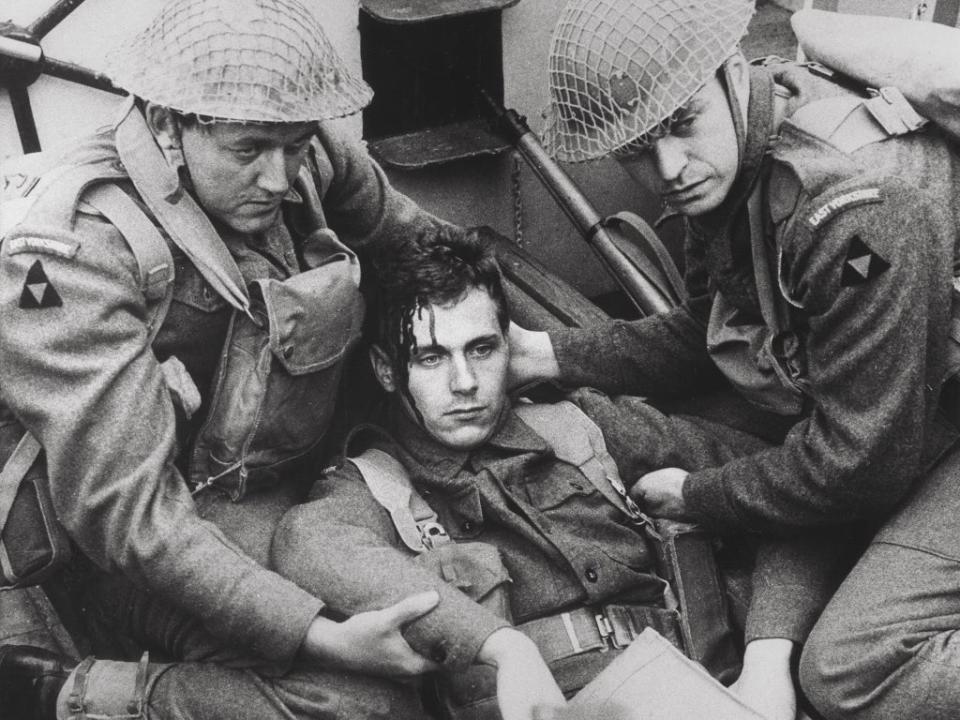
Operation Overlord was the code name for the Battle of Normandy, and this stark low-budget film follows one young soldier from boot camp to his death on Sword Beach. The black and white cinematography, courtesy of Stanley Kubrick’s frequent collaborator John Alcott, blends seamlessly with archive footage, and the result is a film very different in scope and approach from The Longest Day, but no less effective.
18 Where Eagles Dare (Brian G Hutton, 1968)

The prolific thriller writer Alistair MacLean was never particularly well served by the film adaptions of his hugely successful novels, apart from the obvious exception of The Guns of Navarone. This thrill-a-minute blockbuster also succeeds, largely due to MacLean’s own screenplay, which he wrote in concert with the novel, and the star pairing of Richard Burton and Clint Eastwood who team up to rescue a high-ranking American officer from a seemingly impenetrable German castle. The Nazis are, of course, mere canon fodder for our heroes, and it pays to suspend disbelief with some signature MacLean plot twists, while the fight atop a mountain cable car remains brilliantly thrilling.
17 Twelve O’Clock High (Henry King, 1949)

Gregory Peck was given an Oscar nod as the general who replaces the commanding officer of a US army bomber squadron who has become too emotionally close to his beleaguered men. He ruthlessly and dispassionately sets about restoring morale, but eventually falls prey to the same syndrome. Twelve O’Clock High was one of the first films to tackle the psychological effects of war on servicemen, and has been used for decades as a training film not just for the armed forces but a host of organisations, from hotel chains to the emergency services, about the effects of the burden of command and how to recognise the symptoms.
16 The Dirty Dozen (Robert Aldrich, 1967)
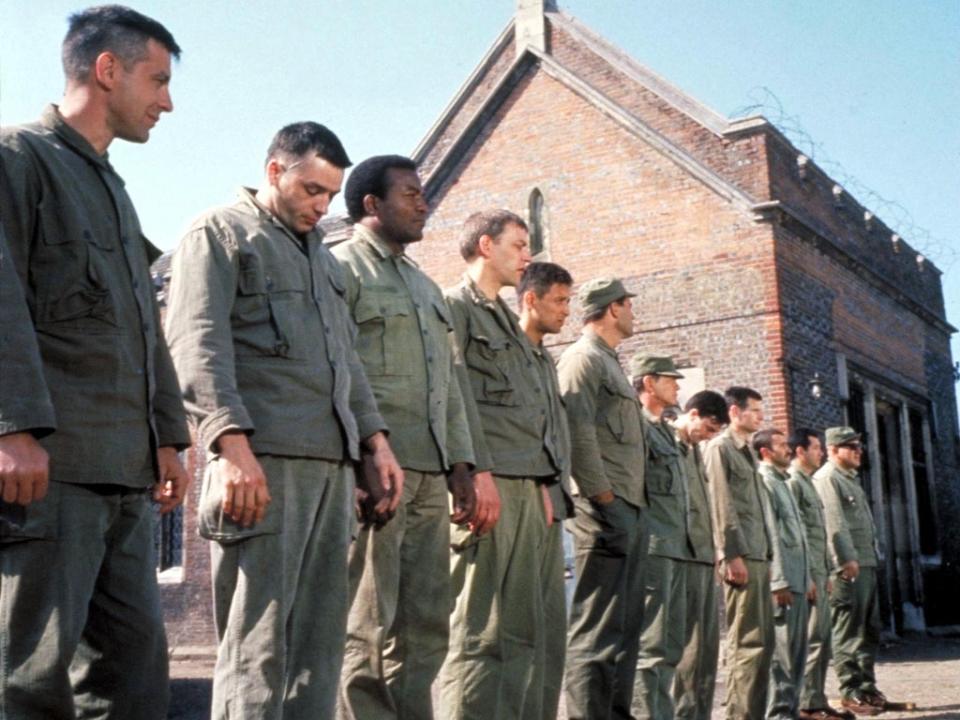
A huge box-office smash featuring assorted murderers, psychopaths and various other army prisoners, all given a chance of redemption in a hopeless suicide mission behind enemy lines. Audience manipulation at its zenith, thanks to a brilliant cast headed by Lee Marvin, and Aldrich at his most nihilistic. One of the other stars, Charles Bronson, was awarded a Purple Heart during his own Second World War service.
15 The Big Red One (Samuel Fuller, 1980)

Based on Fuller’s own experiences, The Big Red One follows a troop of American soldiers and their transition from callow youths to battle-hardened veterans under their tough but fatherly sergeant (a terrific Lee Marvin). The maverick director’s finest film eloquently and movingly illustrates the futility and tragedy of war, and provides all the evidence you need to back up Martin Scorsese’s assertion that the truest, the least sentimental and toughest war films were Fuller’s.
14 The Dam Busters (Michael Anderson, 1955)
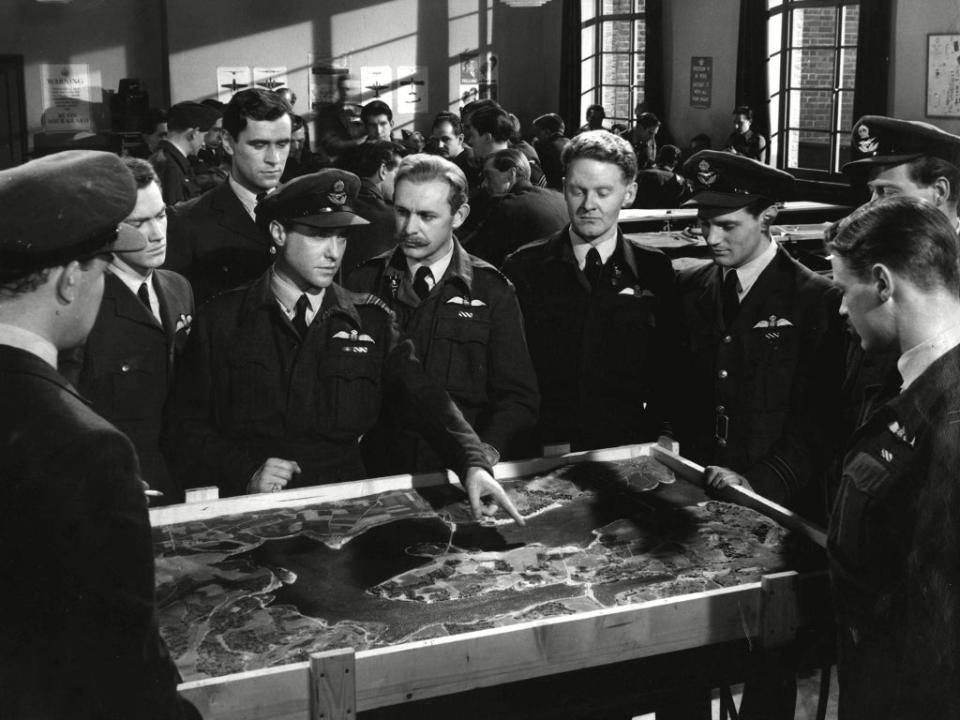
With its stirring theme music and spectacular (for the time) special effects, The Dam Busters is one of the most famous of all British Second World War films. The Dam Busters chronicles the exhaustive development by engineer Barnes Wallis of the bouncing bomb and its subsequent deployment in the famous raid that destroyed two of Germany’s strategically important Ruhr dams in May 1943. Constrained by the fact many key details of the raid were still classified, director Anderson nevertheless produced a pretty faithful account of events – a patriotic tribute to unsung heroes, but a film that never flinches to show the true human cost of war.
13 From Here to Eternity (Fred Zinnemann, 1953)

Hamstrung by the censors, Zinnemann made the best film he could from James Jones’s epic and controversial novel, and it remains a very good one indeed. The ensemble cast is superb, with Ernest Borgnine, Burt Lancaster, Deborah Kerr, Montgomery Clift and Oscar-winning Donna Reed all at the top of their game, while Frank Sinatra also proved he could act and lifted the Best Supporting Actor Oscar, horse’s head or not. The recreation of the Pearl Harbour attack by the Japanese is a standout in a film that won eight Oscars.
12 The Great Escape (John Sturges, 1963)
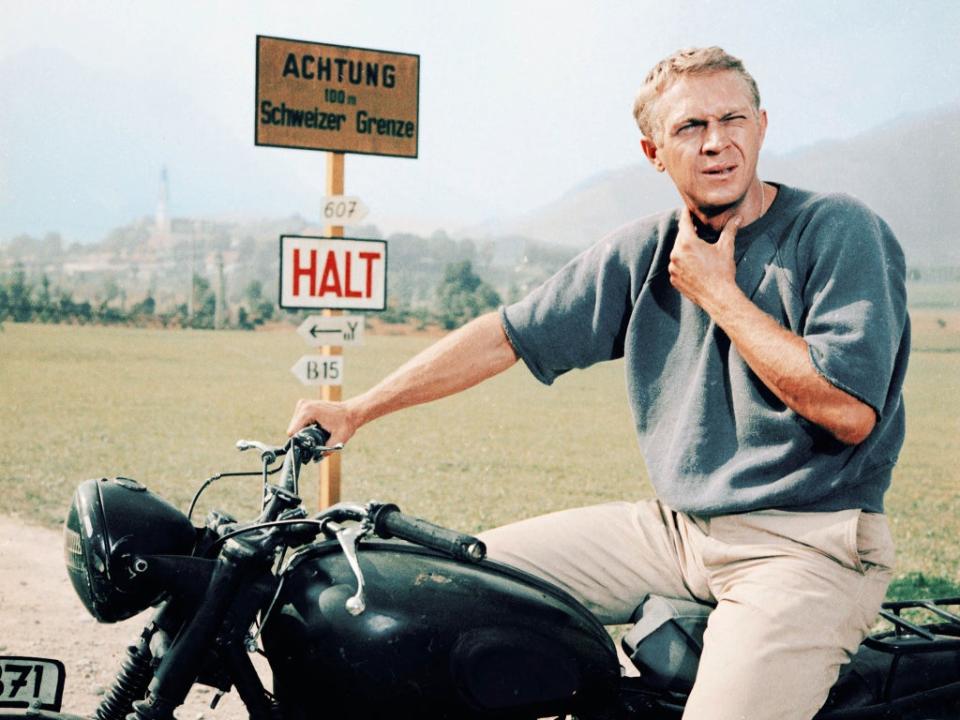
Based on the true story of allied prisoners planning a mass escape from a German prison camp, the jauntiness of much of The Great Escape jars with the grim reality of the executions of many of the real-life escapees on whose story the movie drew. However, this much-loved blockbuster remains one of the most famous films ever made and is a perennial holiday staple. Part of the fun stems from the stellar international cast, some of whom, including Donald Pleasence, had been prisoners of war themselves.
11 Letters From Iwo Jima (Clint Eastwood, 2006)

A companion piece to Eastwood’s Flags of Our Fathers, which told the story of the battle for Iwo Jima from the American perspective, this is the better of the two films, told from the viewpoint of the Japanese. The film marks the culmination of Eastwood’s growth as an artist, as he eloquently and movingly humanises the Japanese soldiers fighting against near impossible odds.
10 The Thin Red Line (Terrence Malick, 1998)
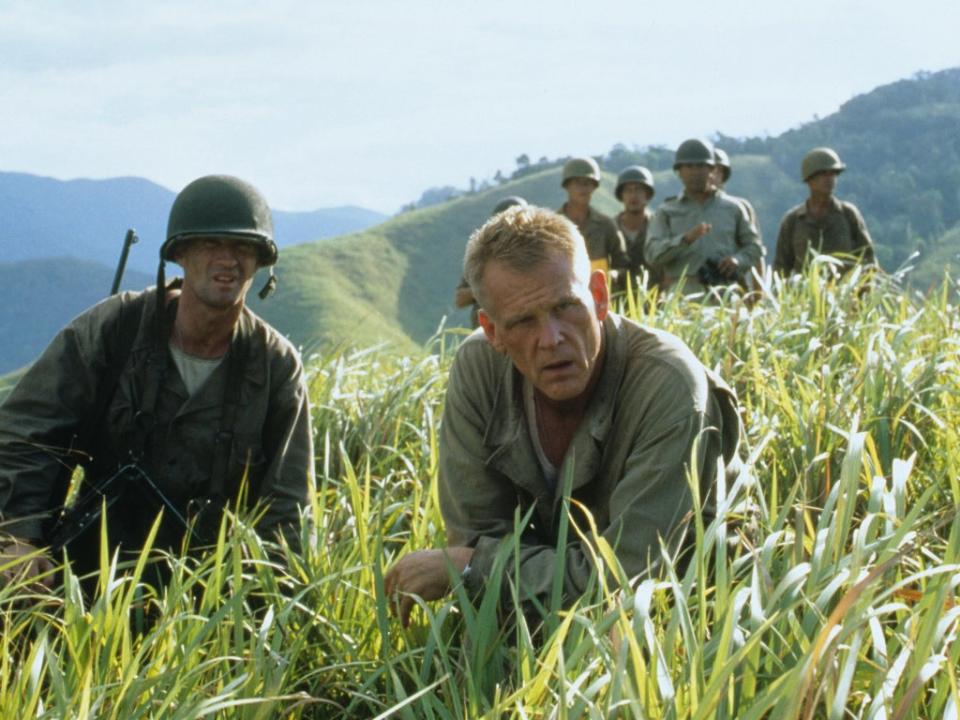
Malick returned to directing after a two-decade absence in stunning fashion with his adaption of the autobiographical James Jones novel. The Thin Red Line follows a troop of American soldiers during the battle for Guadalcanal and, as befits a Malick picture, boasts sumptuous production values and beautiful cinematography in this dreamlike study of men in war as the Eden-like landscape becomes a living hell.
9 The Bridge on the River Kwai (David Lean, 1957)

The celebrated prisoner of war epic set in Japanese-occupied Burma with Alec Guinness as the British colonel obsessed with building the titular bridge. Colonel Nicholson’s reasoning is that if the prisoners can build the best bridge they can, it will boost their morale and show the camp’s brutal commandant that the British soldier is superior to the Japanese, oblivious that in doing so he may be aiding the enemy. As much a battle of wills as a great action movie, this enduring classic won seven Oscars, including Best Picture, Best Director, and Best Actor for Guinness, and remains a perennial television favourite.
8 Rome, Open City (Roberto Rossellini, 1945)

A classic of Italian neorealism with many unforgettable images full of raw immediacy, and featuring an immense performance from Anna Magnani. Open City is a stark, brutal account of the Italian resistance during the Nazi occupation of Rome, which the director shot in piecemeal fashion in a ravaged city only recently liberated by American forces.
7 Das Boot (Wolfgang Petersen, 1981)
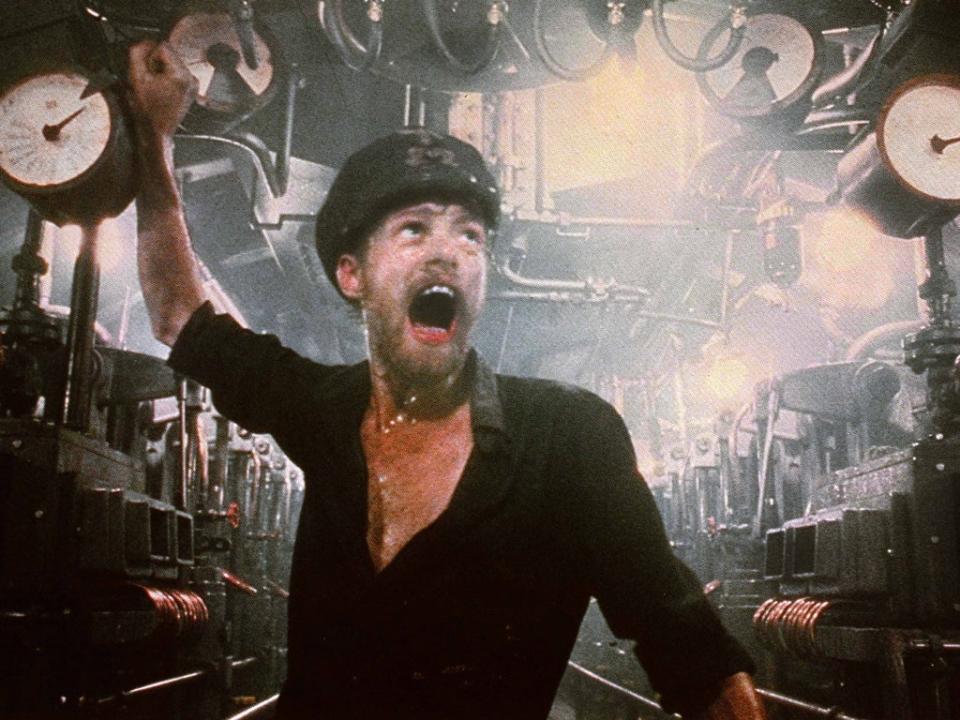
A masterful ultra-realistic account of a German U-Boat crew during the Battle of the Atlantic, which favours suspense and tension as much as thrillingly authentic battle scenes. Das Boot incorporates a strong anti-war message while emphasising the sailors’ contempt for the Nazis as they (and the audience) experience the long days of tedium and claustrophobic horror of underwater warfare.
6 Grave of the Fireflies (Isao Takahata, 1988)
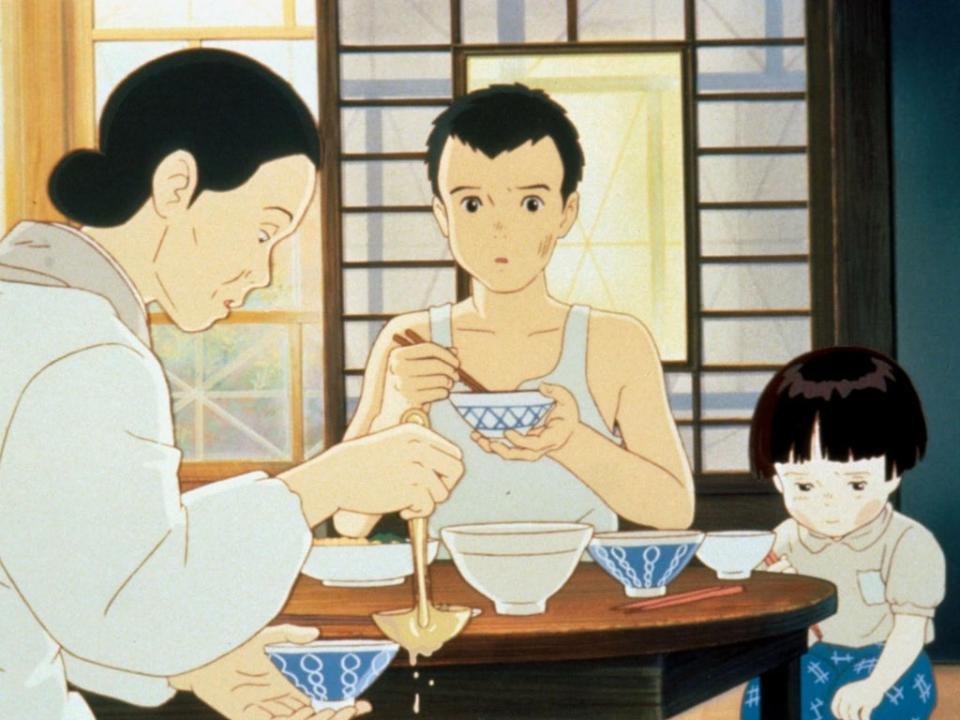
Heartbreaking and thought-provoking anime from Studio Ghibli about brother and sister Japanese orphans desperately trying to survive in the dying days of the war. A haunting anti-war statement almost without peer, adapted from the story by Akiyuki Nosaka and based on his own experiences in the firebombed city of Kobe.
5. Dunkirk (Christopher Nolan, 2017)
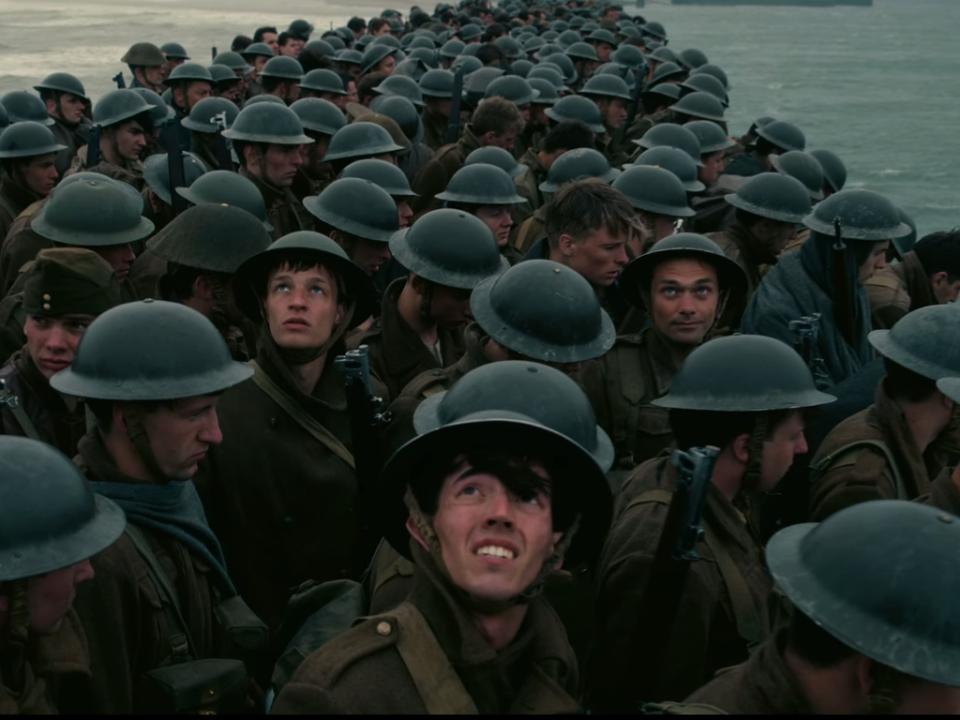
Nolan’s retelling of the Dunkirk evacuation is a stunning achievement, which on release immediately entered the pantheon of great war movies. Three separate stories – the soldiers on the beach and one young Tommy in particular, the Spitfires overhead, and the brave civilians who risk their lives to cross the Channel in their boats to help with the rescue, are intertwined to a wall-of-sound backdrop for one of the most immersive films you could ever wish to experience.
4 Saving Private Ryan (Steven Spielberg, 1998)
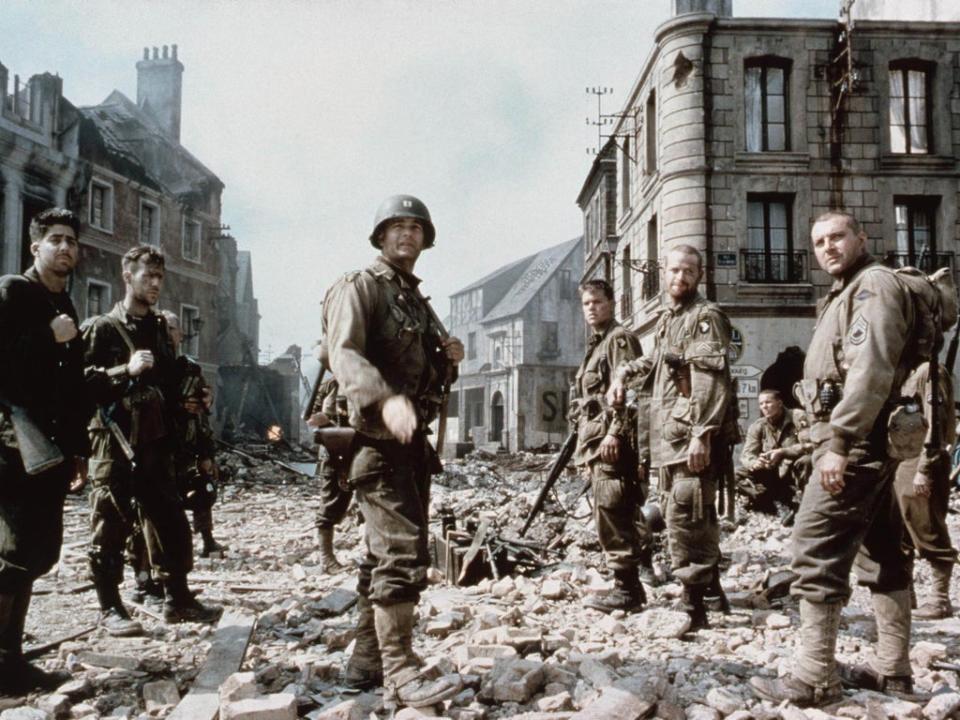
Until SavingPrivate Ryan, with its shockingly realistic opening half hour on Omaha Beach during the Normandy landings, no Hollywood film had shown the carnage of warfare quite so graphically. Spielberg then poses the question “how do you find decency in the hell of warfare?” as Tom Hanks’s troop go deep behind enemy lines to rescue one man so he can return home to his grieving mother who has lost all three of her other sons. Occasionally sentimental, undeniably manipulative, but a film that virtually reinvented the genre.
3 Come and See (Elem Klimov, 1985)

One of the most harrowing films ever made, this Russian masterpiece drew on the experiences of the film’s writer, Ales Adamovich, who witnessed many of the atrocities portrayed. A surreal, nightmarish experience as we witness the transition of a carefree 14-year-old Belarusian boy become a resistance fighter, traumatised by the barbarism of the invading Nazi forces.
2 Casablanca (Michael Curtiz, 1942)
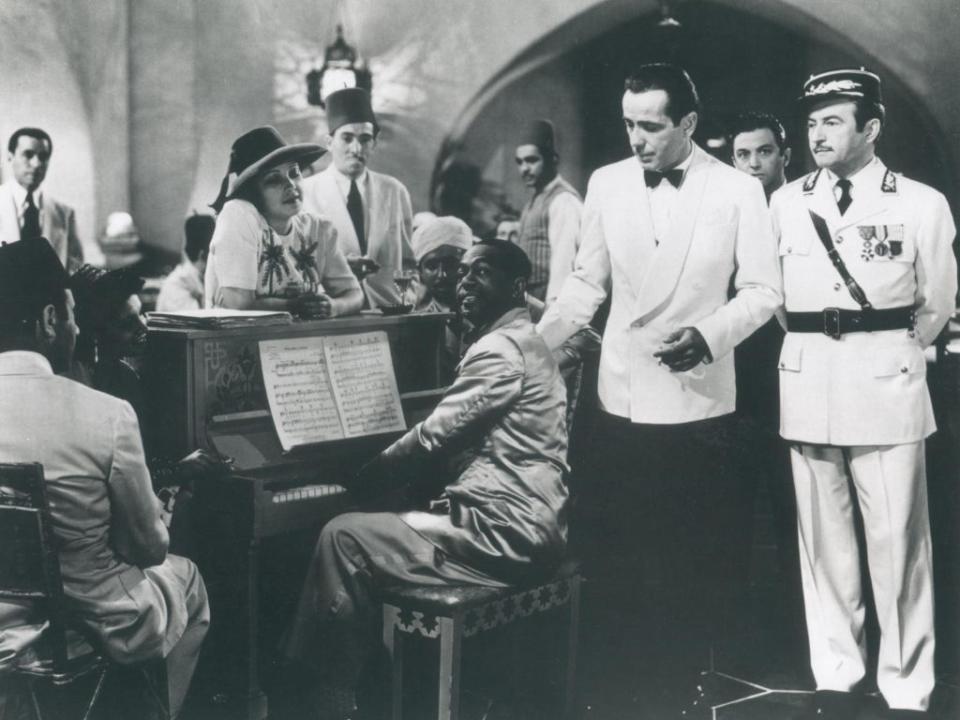
The romantic drama par excellence spends most of its running time in Rick’s nightclub, apart from the glorious climax at the airport, but with its war-torn setting and those nasty Nazis, Casablanca is undoubtedly a classic war film too. Stars, script, director and music all align perfectly to create one of Hollywood’s greatest, most loved and most legendary films.
1 Schindler’s List (Steven Spielberg, 1993)

Spielberg’s deeply personal masterpiece is perhaps the most moving war film ever made. All the more so with the knowledge that it was based on the true story of Oskar Schindler, who originally set out to make his fortune by exploiting cheap Jewish labour in Krakow.
However, as Schindler witnesses the unfolding horror of the Holocaust, his motivation changes and he bribes Nazi leaders to keep his employees out of the extermination camps, saving more than 1,100 lives. The winner of seven Oscars, Schindler’s List does full justice to Thomas Keneally’s source novel and remains just as powerful and relevant today.

 Yahoo Movies
Yahoo Movies 
